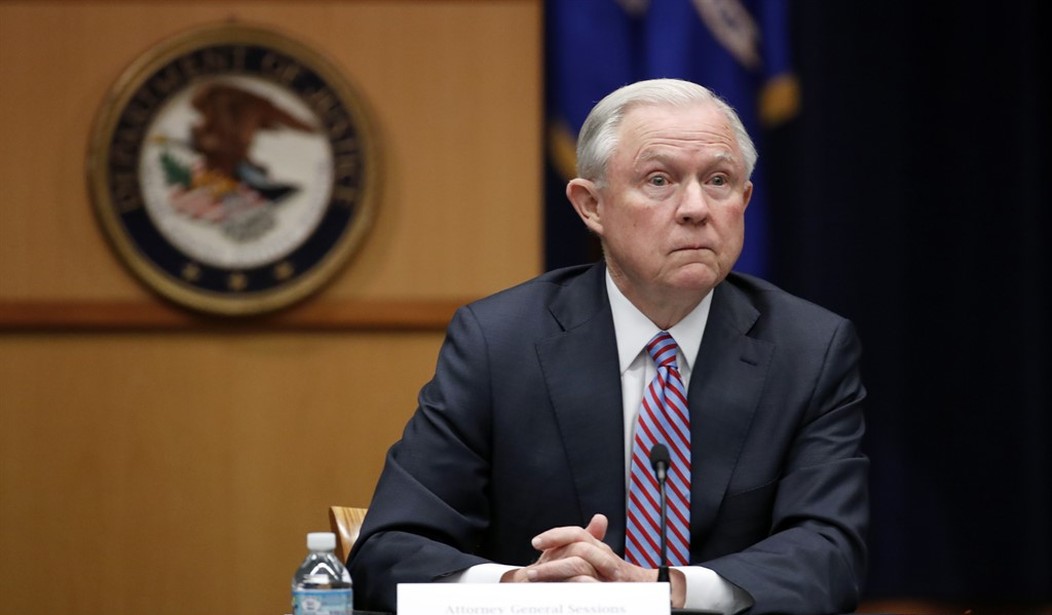As a senator, Jeff Sessions helped kill bipartisan legislation that would have made federal drug penalties less mindlessly draconian. As attorney general, he seems determined to make those penalties as disproportionate as possible, instructing federal prosecutors to pursue the most serious provable charges without regard to culpability or dangerousness.
That policy, announced in a memo last week, reverses a Justice Department initiative that sought to spare low-level, nonviolent drug offenders the 5-, 10- and 20-year minimum sentences that are supposedly aimed at ringleaders and kingpins. The shift signals a return to unfair, ineffective drug policies that have been rightly repudiated by politicians across the political spectrum.
The current mandatory minimums sentences for drug offenses, which Congress enacted during the "Just Say No" era that Sessions remembers fondly, are tied to drug weight, which is often a poor indicator of a defendant's role in a criminal organization or the danger he poses. "Crafted purportedly for sharks, mandatory minimums catch lots of minnows," notes Families Against Mandatory Minimums, which points out that "93 percent of individuals who receive mandatory minimum sentences played no leadership role in their offense."
In 2013, Attorney General Eric Holder tried to ameliorate this injustice by urging federal prosecutors to omit drug weight from charges against nonviolent offenders who did not have leadership roles, significant criminal histories, or significant ties to large-scale drug trafficking organizations. Largely thanks to that policy, the share of federal drug offenders facing mandatory minimums fell from 62 percent in fiscal year 2013 to less than 45 percent in fiscal year 2016.
The upshot of that trend was substantially shorter prison sentences for thousands of minor drug offenders. During this same period, the bloated, over-capacity federal prison population, which grew steadily from 1980 through 2013, began to shrink, although that change had more to do with shorter crack cocaine sentences that Congress approved in 2010.
Recommended
How does Sessions, who supported the 2010 reforms, justify his belief that Holder went too easy on drug offenders? "Drugs and crime go hand in hand," he told a police group in New York City last Friday. "Drug trafficking is an inherently violent business."
There is nothing inherently violent about the sale of psychoactive substances, as a trip to your local liquor store will confirm. Drug trafficking is violent only because the government makes it so by creating a black market in which there are no legal ways to resolve disputes.
In any case, the observation that drug offenders are sometimes violent does not justify the assumption that any given defendant is. Holder's policy made sensible distinctions that Sessions pretends do not exist.
Sen. Tom Cotton, R, Ark., another prominent opponent of sentencing reform, is equally oblivious. Responding to Sessions' memo, Cotton said, "I agree with Attorney General Sessions that law enforcement should side with the victims of crime rather than its perpetrators."
That stance obscures the difference between peaceful, consensual transactions that violate no one's rights, such as the exchange of drugs for money, and predatory crimes with specific, identifiable victims, such as robbery and murder. Even if you don't think this distinction makes drug prohibition inherently unjust, it is surely relevant in deciding what punishment someone deserves.
The practical impact of Sessions' memo will depend on how federal prosecutors around the country respond to it. But by establishing a new default rule from which prosecutors are supposed to depart only with permission from their supervisors and a written justification, Sessions is pointing the way to longer prison sentences for many people who pose no real threat to you or me.
True conservatives understand there is a point at which the cost that incarceration imposes on taxpayers, defendants, their families, and their communities exceeds any conceivable public safety benefit. As Sen. Mike Lee, R, Utah, a leading advocate of sentencing reform, observed on the day Sessions' memo was announced, "To be tough on crime we have to be smart on crime."

























Join the conversation as a VIP Member